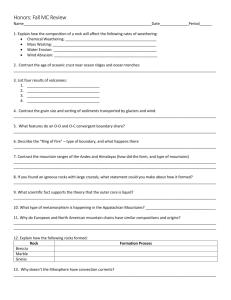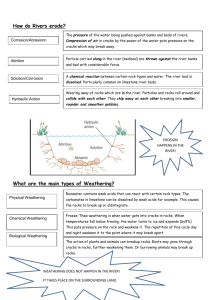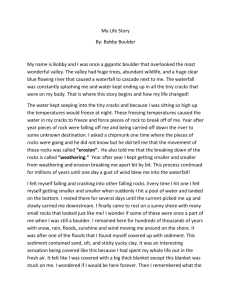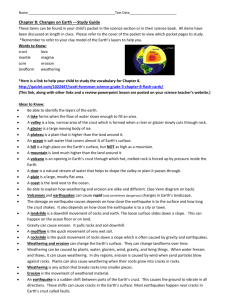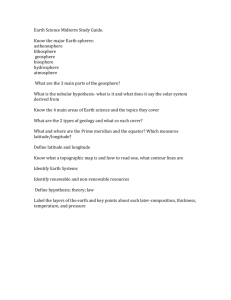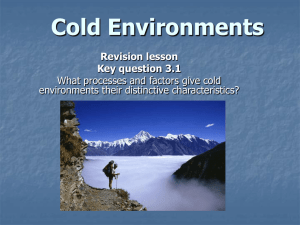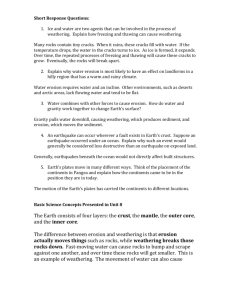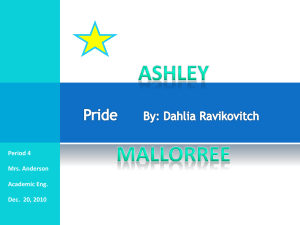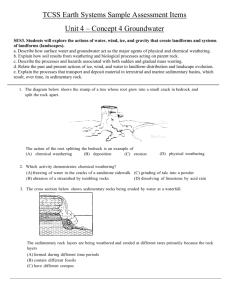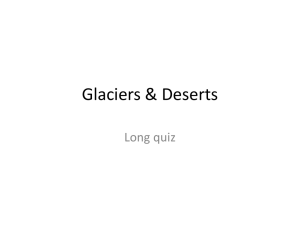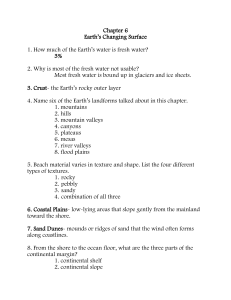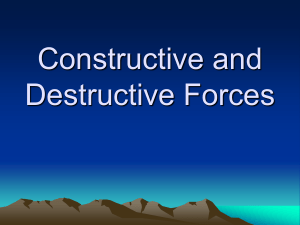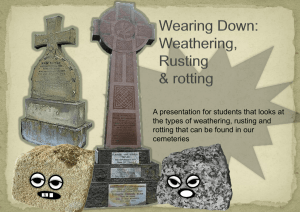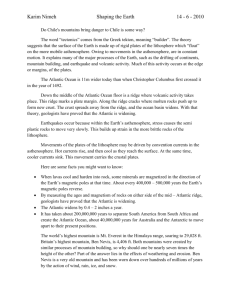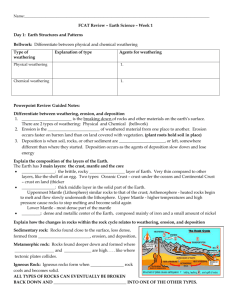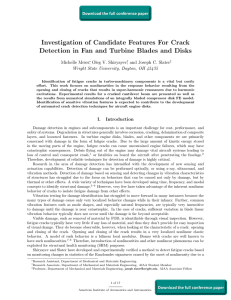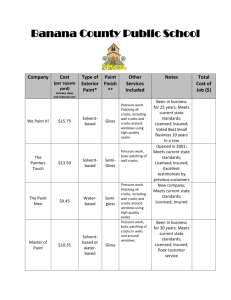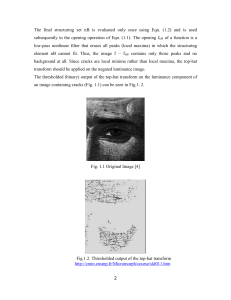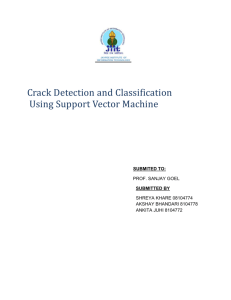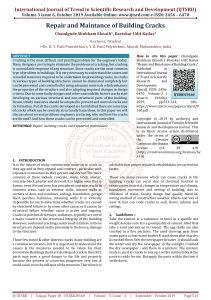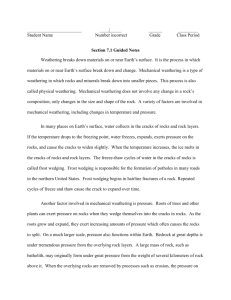Unit 8 Study Guide Older mountains will be more weathered than
advertisement
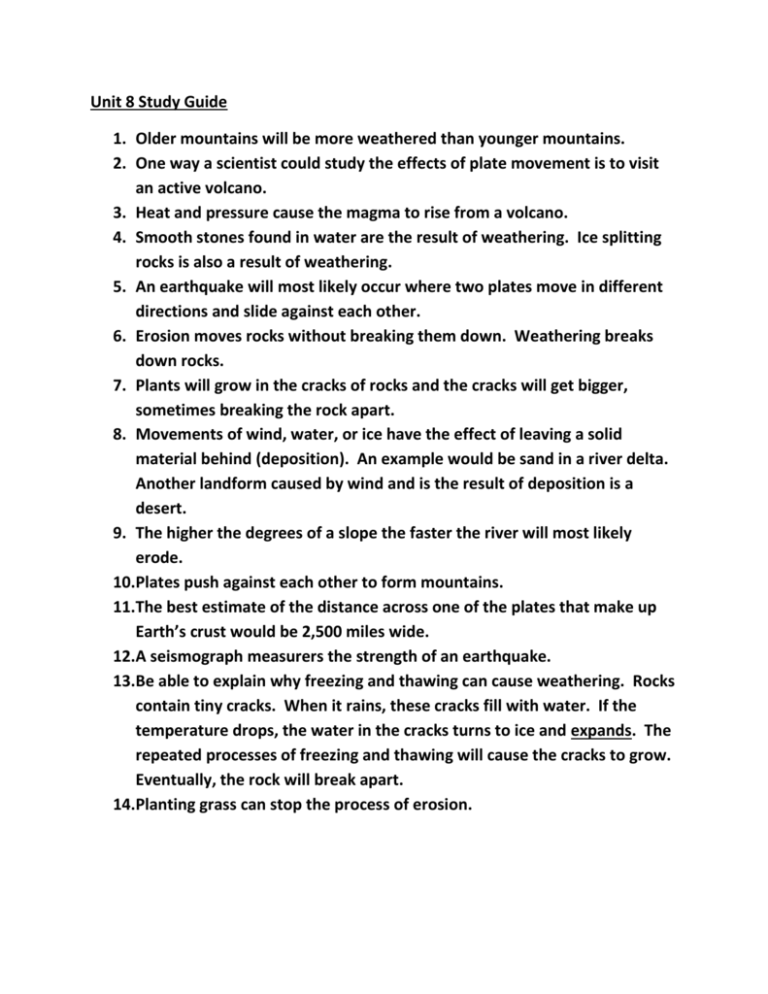
Unit 8 Study Guide 1. Older mountains will be more weathered than younger mountains. 2. One way a scientist could study the effects of plate movement is to visit an active volcano. 3. Heat and pressure cause the magma to rise from a volcano. 4. Smooth stones found in water are the result of weathering. Ice splitting rocks is also a result of weathering. 5. An earthquake will most likely occur where two plates move in different directions and slide against each other. 6. Erosion moves rocks without breaking them down. Weathering breaks down rocks. 7. Plants will grow in the cracks of rocks and the cracks will get bigger, sometimes breaking the rock apart. 8. Movements of wind, water, or ice have the effect of leaving a solid material behind (deposition). An example would be sand in a river delta. Another landform caused by wind and is the result of deposition is a desert. 9. The higher the degrees of a slope the faster the river will most likely erode. 10.Plates push against each other to form mountains. 11.The best estimate of the distance across one of the plates that make up Earth’s crust would be 2,500 miles wide. 12.A seismograph measurers the strength of an earthquake. 13.Be able to explain why freezing and thawing can cause weathering. Rocks contain tiny cracks. When it rains, these cracks fill with water. If the temperature drops, the water in the cracks turns to ice and expands. The repeated processes of freezing and thawing will cause the cracks to grow. Eventually, the rock will break apart. 14.Planting grass can stop the process of erosion.
